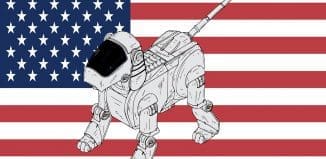Robots to the rescue?
This post is also available in:  עברית (Hebrew)
עברית (Hebrew)
 Robot experts at Carnegie Mellon University will field two teams in the Defense Advanced Research Projects Agency (DARPA) Robotics Challenge, a competition in which robots will perform complex, physically challenging tasks as they respond to disaster scenarios in human-engineered environments, such as nuclear power plants.
Robot experts at Carnegie Mellon University will field two teams in the Defense Advanced Research Projects Agency (DARPA) Robotics Challenge, a competition in which robots will perform complex, physically challenging tasks as they respond to disaster scenarios in human-engineered environments, such as nuclear power plants.
DARPA announced the Robotics Challenge last spring as part of its response to the federal government’s National Robotics Initiative. Officials noted the supporting role robots played in mitigating fallout from the Fukushima nuclear plant disaster in Japan and advanced the Robotics Challenge as a way to inspire innovations that would make ground robots more capable of intervening in high-risk situations.
The Robotics Challenge is now officially under way, with a software “virtual” competition planned for June 2013, followed by live hardware challenges in December 2013 and December 2014. The ultimate winning team will receive a prize of $2 million.
Tartan Rescue Team was selected by DARPA as one of seven teams in Track A, each of which will be developing a new robotic system including both hardware and software. The team will receive $3 million from DARPA to help with development and may eventually qualify for an additional $1 million.
“CMU’s strength in this competition is that we have always taken seriously the idea that we need to make robots that do things in the real world,” Atkeson said. “We have a wealth of experience here, so it’s easy for me to get help from a bunch of colleagues to do this.”
Carnegie Mellon’s Tartan Racing team was victorious in an earlier DARPA robot competition, the 2007 Urban Challenge road race. Carnegie Mellon’s self-driving SUV, Boss, navigated more than 50 miles of urban and suburban streets, following all traffic laws and safely sharing the road with robotic and non-robotic vehicles, in four hours and 10 minutes — almost 20 minutes faster than the second-place finisher.
“One of DARPA’s goals for the challenge is to catalyze robotics development across all fields so that we as a community end up with more capable, more affordable robots that are easier to operate,” said Gill Pratt, DARPA program manager for the Robotics Challenge.
.





























